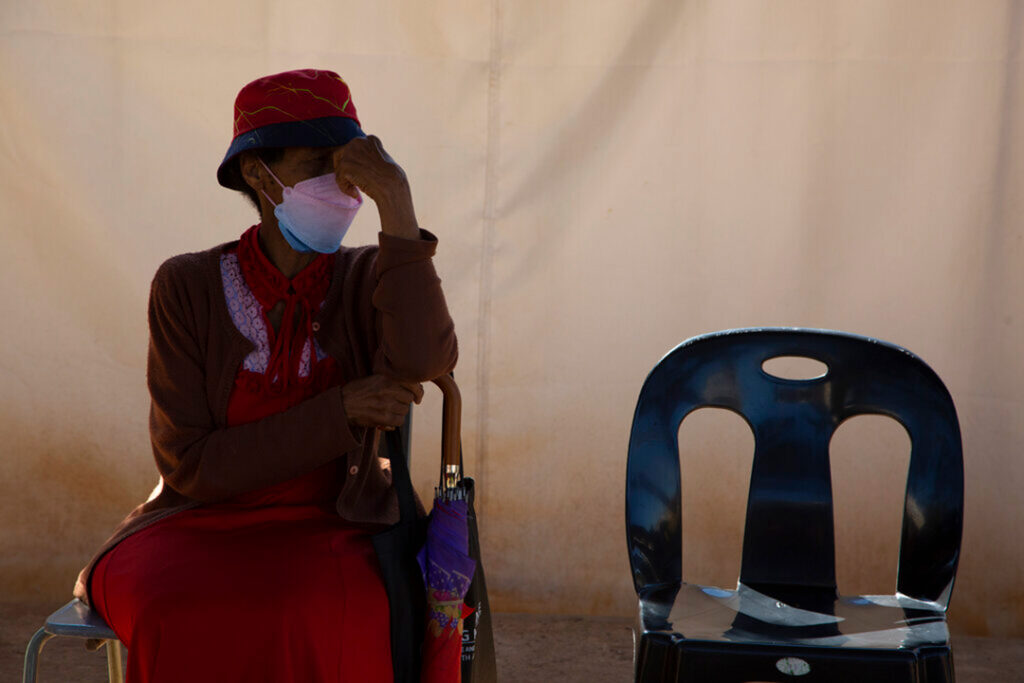ADF STAFF
Vuyo Lumkwani awoke one morning in mid-May feeling unwell with a headache, stuffy nose, body aches and dizziness. She went to a COVID-19 testing center in the Chiawelo area of Soweto, South Africa.
“I was terrified about my symptoms because I thought it might be COVID-19,” she told The Associated Press.
What a relief, she said, to be diagnosed with the flu.
Parts of Southern Africa have experienced a less severe wave of COVID-19 infections with mostly mild symptoms, but it has occurred just as temperatures are beginning to drop in winter months.
“Now we’re in flu season … so it’s flu versus COVID-19,” Chiawelo site manager Magdeline Matsoso told AP. “When we do the tests, you find that the majority of them, they are negative when it comes to COVID, but they do have flu symptoms.
“So they get flu treatment and then they go home, because the majority is related to flu and not COVID.”
How can people tell the difference?
It’s difficult, but experts say to take precautions regardless: Mask up and get tested at the first sign of symptoms.
In mid-May, South Africa saw new COVID-19 cases rise to an average of 8,000 per day, up from the early April average of 300 per day.
Professor Marta Nunes, a researcher at Vaccine and Infectious Diseases Analytics at Chris Hani Baragwanath Hospital in Soweto, warned that the actual number of new COVID-19 cases likely was much higher because many people with mild symptoms did not get tested.
“We are seeing a slight, a small increase in hospitalizations and really very few deaths,” she told AP.
South Africa’s surge is tied to two variations of omicron, BA.4 and BA.5, that appear similar to the original strain of omicron that first was identified in Botswana and South Africa in late 2021.
In Kenya, experts foresee a rise in COVID-19 and influenza infections.
Dr. Ahmed Kalebi, an independent consultant pathologist, said laboratory colleagues have noted that rising flu cases are caused by the human influenza type A virus, a contagious infection that attacks the respiratory system.
“Whatever the cause of the ongoing spike in viral respiratory illnesses, and irrespective of whether it’s due to a surge in flu A with or without rising COVID-19, the protective measures remain the same for all,” Kalebi said to Kenya-based Nation Media Group.
The risk of infection is rising because Kenyans spend most of their time indoors during cooler weather, according to Susan Mochache, Kenya’s principal secretary in the Ministry of Health.
“We gather closely in spaces that may offer less-than-ideal ventilation and reduced social distance,” she told Nation Media Group. “Heating systems also make indoor air drier. Studies have shown that these conditions can greatly affect the transmission of respiratory viruses.”
Since the Ministry of Health lifted the country’s mask mandate on March 11, many people have gone back to shaking hands without the use of sanitizer.
Experts now are urging vigilance and preventive measures.
Dr. Patrick Amoth, the ministry’s acting director-general, warned that the pandemic has not ended and that COVID-19 still is in the community.
“We have not defeated this yet,” he told Nation Media Group. “We have the virus with us, and we should continue observing the measures and ensure that we remain safe.”

